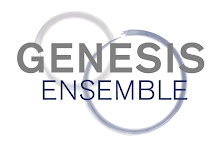Genesis Ensemble premiers
Phenomena
at Chicago Fringe Festival!
ONLY THREE PERFORMANCES!
Phenomena is a devised investigation into the intersections of science, spiritual faith, and UFO sightings. Structured by the convention of a congressional hearing, the ensemble embodies the personas and believes of scientists, theologians, theorists, witnesses, and themselves. Mashing choreography with sourced text, pitting the theoretical against the hypothetical, and examining both the personal and the universal, Phenomena is an encyclopedic exploration with poetic license.
Come out to Jefferson Park to join us for an amazing Fringe Festival! And, join us for a drink after the show at Fischmans!
Chicago Fringe Festival
Spilled Milk Stage, 5320 W. Giddings
at the Congregational Church of Jefferson Park
Thursday, August 29th at 10pm
Friday, August 30th at 7pm
Sunday, September 1st at 2:30pm
Directed by Lindsey Barlag Thornton
Dramaturgy by Libby Hladik with Erika Schmidt
Choreography by Kristyn Hegner
Featuring Alexis Atwill, Amanda Dunne Acevedo, McKenzie Gerber, Ellen Girvin, Sergio Soltero





